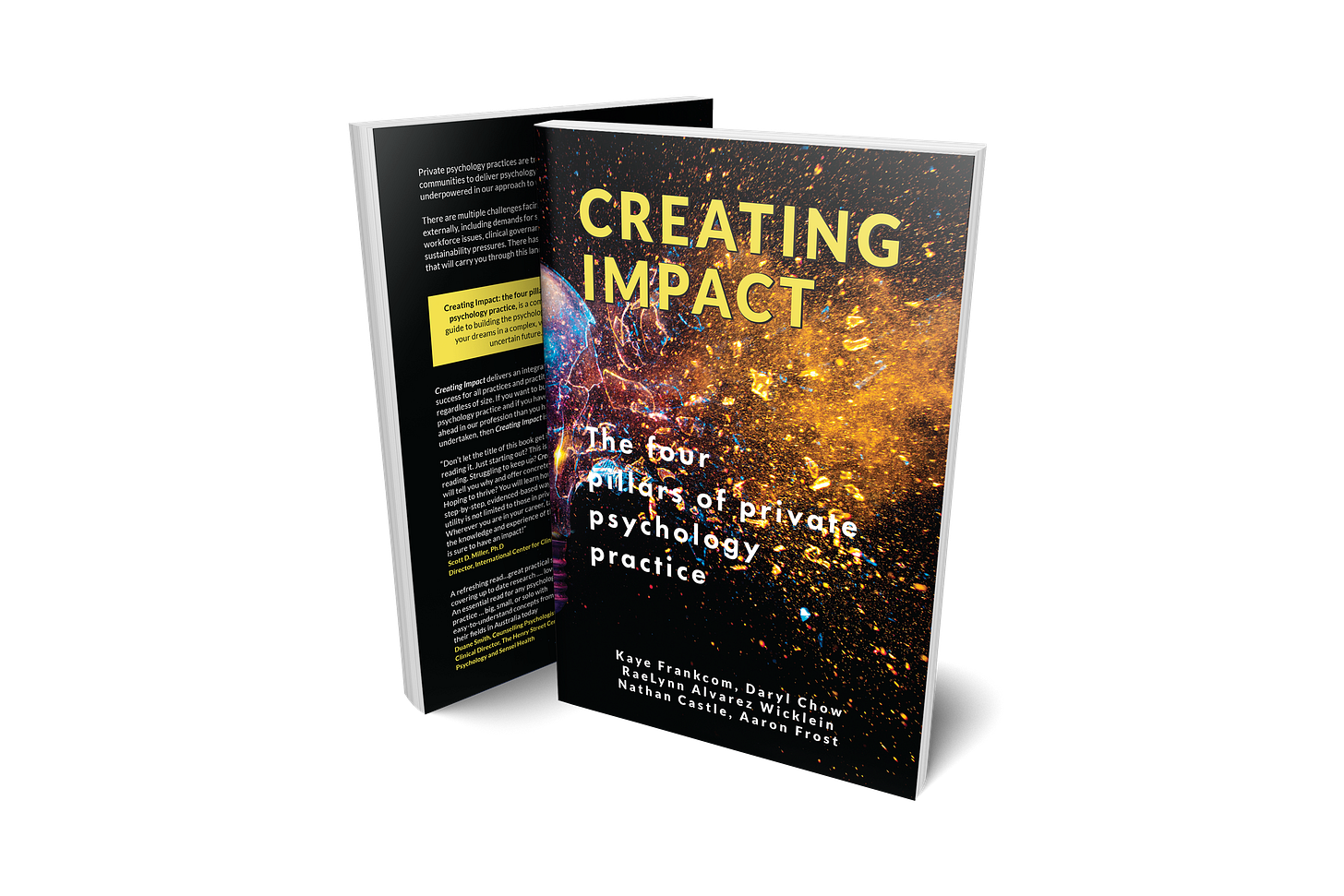FF113: Existence (Part IV) ⭕️
Antidotes to the Existential Vacuum from Morrie Swartz and Viktor Frankl.
Let’s get straight to this week’s Part IV on the topic of Existence, Meaning, and Purpose.
Here’s the previous 3 Parts:
FF110
1. 📕 Read: Tuesdays With Morrie
This was one of the first few "self-help" type of books that I read.
I was introduced to the stories about Morrie Swartz by a mentor who was instrumental to my development when I first started working as a youth worker. In essence, this book is about a student reconnecting with his favorite sociology professor, who is ill with ALS. They began a project of meeting each other each week, on a Tuesday. Mitch Albom began recording these sessions; this is how the book is born.
This book was made into a movie by Oprah Winfrey's productions. I think I watched this more than 3 times, even though I've revisted the book several times in my 20's and 30's. (I did a quick search. The whole film is on Youtube. And if you want to hear a short talk by Mitch Albom, the author of the book, here’s one).
“If you hold back on the emotions--if you don't allow yourself to go all the way through them--you can never get to being detached, you're too busy being afraid. You're afraid of the pain, you're afraid of the grief. You're afraid of the vulnerability that loving entails. But by throwing yourself into these emotions, by allowing yourself to dive in, all the way, over your heard even, you experience them fully and completely."
And one that I’ve kept close to me the last 2 decades:
Death ends a life, but not a relationship.
~ Morrie Swartz
2. 📽 Watch: Viktor Frankl: Self-Actualization is Not the Goal
I suspect many of you would know the book, Man's Search for Meaning. It is essential reading.
Frankl is an Austrian psychiatrist who survived 3 years in Nazi concentrations camps. Surviving through and witnessin the burtality, losing his mother, father and wife, he developed an approach to psychotherapy called Logotherapy.
His core tenet is the belief that a person's primary motivational force is the search for meaning.
Man's Search for Meaning was initially published as an anonymous author. In 1991, Man’s Search for Meaning was listed as “one of the ten most influential books in the U.S.” by the Library of Congress.
He cautioned about the trend he saw in modern psychotherapy with its tendency to reduce an individual to nothing more than a victim of influences of nature or nurture. This, he felt, stripped people from any freedom of choice or responsibility.
In the second-half of his landmark book, Frankl expounds on his approach of logotherapy. According to Frankl, there are 3 main avenues at how one arrives at meaning in life.
i. Creating a work or by doing a deed;
ii. Meaning can be found not only in work but also in love;
iii. Facing a fate he cannot change, rising above himself, and by so doing, change himself. In Frankl's words, "Turn a personal tragedy into a triumph. " (p.170).
In one of his final television interviews, Frankl talks about logotherapy, as well as why self-actualisation is not the goal.
"...preaching self-actualization... it's nonsense.
Self-actualization can only fall into your lap automatically once you have fulfilled a concrete meaning, done the best of a situation, then you actualize yourself as a by-product."
An aside: Abraham Maslow never drew that pyramid of the hierarchy of needs that we know so well. It was created by a management consulting firm in the sixties (Read this article). Maslow would actually point towards self-transcendence, not self-actualisation.
I’ve not seen this yet, but there’s a film made by Alexander Vesely (who also made a film about Milton Ericsson), call Viktor and I- The Life and Work of Viktor Frankl. (for rent on Vimeo).
3. 🎧 Listen: Journeying From the First to the Second Half of Life
Great interview with Jungian analyst James Hollis.
This conversation explores the differences between the first and second halves of life (more on this in FF112, and how the main question of the first is "What is the world asking of me?" while the primary question of the second is "What is my soul asking of me?"
4. 🎥 Watch: Tender Bar
I’m reminded by Mary Karr’s words:
“A dysfunctional family is any family with more than one person in it.”
Based on a novelist's memoir, this coming-of-age movie directed by George Clooney (and starring Ben Affleck) is a worth watching.
This story points to something that the resilience literature have highlighted: The importance of having a significant, caring figure in your life.
In this story, you'd learn how a boy's grows up in a bar, guided by his Uncle who becomes a father-figure to him. Available on Prime.
5. ⏸ Words Worth Contemplating:
“When we are no longer able to change a situation, we are challenged to change ourselves.”
~ Viktor Frankl
Reflection
Given the current season of your life, what does life asks out of you?
What needs to change?
What needs to continue?
Perhaps more importantly, what needs to be let go of?
Waitlist for Clinical Supervisor’s Training
Are you a clinical supervisor?
If so, the online course Reigniting Clinical Supervision that has been going on for more than 4 years is about to begin it’s next cohort.
RCS is specifically designed to help you raise the bar of in supervision, and become more effectual with therapists, so that your positive impact promotes therapist’s development, and ultimately impact their clients.
Email me to be on the waitlist to be in the 13th cohort, slated to begin before the end of 2022. (E: admin@darylchow.com)
BIG HUGS TO NEW PEOPLE WHO ARE AT THEIR FRONTIER!
If you've just joined us, I'm glad you can join us at the "bleeding edge." Feel free to check out the back catalogue of Frontiers of Psychotherapists Development (FPD). You might also want to go into specific topics in the FPD Archives like
And if you want to see past newsletters, the entire archive is now made available in substack.
In case you missed it, see the most recent missives
Devotion to the Craft (6 Parts)
Caring for People in Organisations (3 Parts)
Clinical Supervision (3 Parts)
Feedback Informed Treatment (4 Parts)
Unintended Consequences (2 Parts)
Deep Learner (4 Parts)
Going Further with Deep Learner and The Use of Obsidian (6 Parts)
See What You Hear, Hear What You See (4 Parts)
Trauma (3 Parts)
Deliberate Practice (5 Parts)
Empathy (6 Parts)
Therapist Effects (2 Parts)
Client Point of View (4 Parts)
Tech Tools for Therapists (4 Parts)
Emotions (6 Parts)
Sensitivity (3 Parts)
Alliance (6 Parts)
My other blog site is called FullCircles: Reflections on Living
By the way, don't feel bad if you want to unsubscribe to this newsletter. This might not be for you. The last thing I want is to add to the anxious clutter of our inboxes.
Daryl Chow Ph.D. is the author of The First Kiss, co-author of Better Results, and The Write to Recovery, Creating Impact, and the forthcoming book The Field Guide to Better Results.
Note:
These newsletter are free, many hours are spent handpicking the curated list that make it to Frontiers Friday, as well as writing the essays and recording the videos and podcasts. Amazon affiliate links, if any, are to help ease the costs. You can also support the sustenance of this work by picking up any of the books, or gifting them to others.
Big thanks.
p/s: Please excuse any typos.





